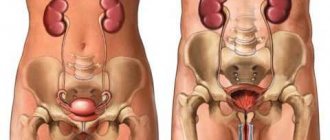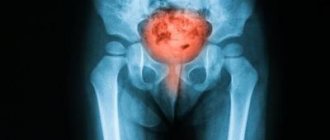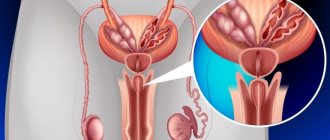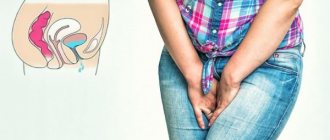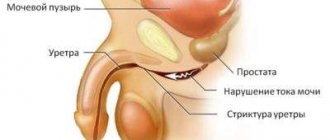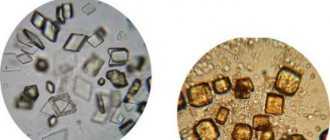Urethritis is an inflammation of the mucous membrane of the urethra (urethra), which serves to remove urine from the body. In men, the urethra is also a conduit for sperm.
In most cases, urethritis is caused by urogenital infections and opportunistic microorganisms (subject to decreased immune status or impaired barrier function of local immune factors).
Much less commonly, urethritis is caused by exposure to chemicals or trauma.
Inflammation that begins in the urethra, if not adequately treated, can spread and affect the bladder and other pelvic organs. This disease affects both men and women, regardless of age.
Particularly at risk are young men 20-35 years old who are sexually active and neglect the means of protection in the form of condoms, as well as men who practice anal sex.
Classification of urethritis
Below is a classification of urethritis based on the etiology of urethritis and its origin.
Urethritis of sexual origin
— Venereal (caused by naturally sexually transmitted microorganisms that are not found in healthy people):
- chlamydial; - Trichomonas; - ureaplasma; - herpetic (primary infection with herpes simplex virus type 2).
— Conditionally venereal:
— Caused by pathogenic pathogens of non-venereal infections accidentally entering the urethra (candidiasis, bacterial, entamoeba, etc.); — Caused by opportunistic microorganisms that usually live as saprophytes on the mucous membrane of the oropharynx (Neisseria non gonorrhoeae, gen. Mimeae, etc.); — Gardnerella (caused by Gardnerella vaginalis?) and caused by group B streptococci.
Urethritis of non-sexual origin
- Infectious - urethritis that occurs secondary to general infections or local infectious-inflammatory diseases (chronic prostatitis, etc.), as well as dysbacterial urethritis (candidiasis and bacterial).
— Non-infectious:
- traumatic (from exposure to mechanical, chemical and thermal irritants); - due to metabolic disorders (phosphaturia, oxaluria, uraturia); - allergic; - congestive; - due to a tumor in the urethra; - dermatous (symptomatic).
Causes of urethritis
The causative agents of the disease are bacteria and viruses. Often the cause of inflammation of the urinary tract is E. coli, as well as infections that cause sexually transmitted diseases (chlamydia, gonorrhea).
Viral causes include cytomegalovirus and herpes simplex virus.
Chronic urethritis is a pathological condition that develops in the urinary tract as a result of improper treatment or its absence. In this case, periodic outbreaks are replaced by remissions. The long course of the disease leads to undesirable consequences: adhesions develop in the urethra, its lumen narrows, and associated complications arise.
Gonococcal urethritis. This is an inflammation that occurs as a result of sexual contact with a partner who has gonorrhea. The causative agents of gonococcal urethritis (in 80% of cases) are gram-negative intracellular diplococci. Patients with gonococcal urethritis have a shorter incubation period than those with non-gonococcal urethritis and experience symptoms such as dysuria and purulent discharge earlier.
Nongonococcal urethritis (NGU). The disease usually begins with dysuria or, less commonly, with mucopurulent discharge. Sometimes NGU is asymptomatic, unlike patients with gonococcal urethritis. The causative agents of non - gonococcal urethritis (15-55% of cases) are ureplasma, Candida fungi, chlamydia, Trichomonas, etc. Often, the causative agents of the disease cannot be identified in the majority of patients with NGU. Rare cases of NGU are associated with lymphogranuloma venereum, herpes simplex, syphilis, and mycobacteria. Other, rarer causes include anaerobes, adenovirus, cytomegalovirus and streptococcus. Intermittent catheter use can also cause NGU in 2-20% of patients. As practice shows, latex-based catheters are 10 times more likely to cause infection than silicone ones.
Urethritis of mixed etiology is usually caused by gonococcal infection and other microorganisms in combination. The cause may be inadequate treatment and some other factors, such as:
- Sexually transmitted diseases (gonorrhea, syphilis, chlamydia, herpes simplex virus or AIDS. Mycoplasma genital; - Bacteria and other microorganisms found at the entrance to the urethra; - Herpes simplex; - Adenovirus; - Injuries in women during sexual intercourse; - Reiter's syndrome ; - Escherichia coli; - Sensitivity to spermicides or contraceptive jellies, creams, foams, etc.
If the patient has undergone medical procedures using foreign objects (for example, a catheter) in the urethra, then the cause of inflammation is most likely injury.
Causes of urethritis in men
- Chemical irritation from soap, lotion, or cologne can cause temporary pain in the urethra. Spermicide in condoms, birth control gels, contraceptive creams or foams may also cause irritation. — Mechanical manipulation of the penis or minor trauma can lead to urethritis. Medical procedures, uncomfortable clothing, vigorous sexual activity, or masturbation may cause temporary irritation of the urethra. - Sometimes ejaculation causes a feeling similar to urethritis. As a rule, it goes away in a short period without any special treatment.
Gardnerellosis in men: symptoms and treatment, how it is transmitted, medications
One of the common infectious diseases is gardnerella in men. The cause of the disease is the bacteria Gardnerella vaginalis. They are present in the microflora and are practically not found in men. In some pathological conditions, these bacteria begin to actively develop, and the body is unable to cope with the infection.
Causes of gardnerellosis in men
The only way in which Gardnerella vaginalis enters a man’s body is through contact with a woman. Therefore, the main causes of the disease are associated with sexual intercourse. But infection does not always occur - in most cases, the immune system copes with the bacteria on its own and completely defeats the pathogenic microflora in a few days. If bacteria remain on a man's genitals for more than five days, Gardnerella must be treated.
Ways how gardnerellosis is transmitted outside of sexual intercourse:
- Through household items (when using bed linen, towels, shared baths, bathtubs and toilets with an infected person);
- From mother to child during natural childbirth.
In rare cases, a man may have his own bacteria in his body. They do not always lead to the disease, and if they provoke it, it is practically asymptomatic.
There are the following risk factors for gardnerellosis in men:
- Weak immunity due to frequent infectious diseases or mental and emotional overload;
- The presence of chronic diseases with frequent remissions;
- The presence of sexually transmitted acute or chronic diseases;
- Frequent promiscuous sexual relations without necessary contraception;
- Taking certain medications, including antidepressants;
- Chronic inflammatory diseases of the male sexual partner.
Symptoms of gardnerellosis in men
Symptoms may depend on how the pathogen is transmitted, but with gardnerellosis in men, the infection may not manifest itself in any way. The symptoms of this infectious disease are quite easily confused with signs of any other inflammatory process that can occur in the male genitourinary system. Many symptoms and treatment of gardnerellosis coincide with the signs of urethritis, which leads to erroneous diagnosis.
The following symptoms of gardnerellosis in men exist:
- Discharge from the urethra. They can appear at any time, before or after urination, or during sexual intercourse. Many men notice the appearance of traces of discharge on their underwear after sleeping. The discharge is usually cloudy, has an unpleasant odor and a greenish tint;
- Pain. During the development of gardnerellosis, a man may experience pain of a different nature. Most often they are cutting. They appear when visiting the toilet or during sexual intercourse. Usually the pain is paroxysmal and intensifies as the disease progresses;
- Urinary disorders. When visiting the toilet, men may feel not only cutting pain, but also a burning sensation. It occurs due to a disruption of the normal state of the urethral mucosa. Urine gets on it and irritates it greatly;
- Severe itching;
- Inflammation of the urethra and tip of the penis;
- Sexual dysfunction. This symptom of the disease is quite rare. The reason most often lies in the unpleasant sensations that occur after and during sex. Erectile dysfunction and decreased libido may indicate complications of gardnerellosis.
Treatment of gardnerellosis
Treatment of gardnerellosis must be carried out by both partners. The effectiveness of treatment and prevention of recurrence of the infectious disease depend on this.
A modern treatment regimen for gardnerellosis in men may include several items. Complex treatment allows you to effectively restore the body’s immune defense, stop the growth of pathogenic microflora and completely rid the body of bacteria.
There are the following methods and drugs to treat gardnerellosis:
- Antibiotics. They are the basis of treatment. It is completely impossible to get rid of bacteria without the use of antibiotics. If such treatment is refused, the disease may develop complications or become chronic. Antibiotic treatment also has its disadvantages. It is not always possible to find a drug that quickly helps get rid of the disease the first time. One of the most effective drugs is terzhinan for gardnerellosis. This medicine helps to cope not only with the underlying disease, but also with secondary infections. Quite often, Terzhinan is also prescribed for women for gardnerellosis;
- Procedures aimed at restoring immunity. The cause of gardnerellosis in most cases is associated with a disruption of the immune system. When using antibiotics, the risk of dysbiosis increases even more. Throughout the entire treatment and several months after its completion, it is necessary to take special vitamins and mineral complexes that will help quickly restore the body's defenses. To prevent the disease from occurring again, it is necessary to give up promiscuity, exercise, treat any infectious and inflammatory diseases in a timely manner, and eat right.
In cases where the basic procedures do not help in the treatment of gardnerellosis, the drugs may be changed. In particularly difficult cases, droppers and injections of drugs directly into the urethra are used. This helps to more effectively fight the infectious pathogen.
During treatment, it is necessary to abstain from sexual activity so as not to provoke re-infection.
Physical activity should be limited while taking antibiotics. During the treatment period, you should not eat a lot of sweet, spicy or fatty foods; alcohol is strictly prohibited. It is not recommended to visit the sauna or take a hot bath.
Complications of gardnerellosis in men
If the treatment regimen for gardnerellosis in men does not produce the necessary results, dangerous consequences of the disease may occur. The most common consequences of the gardnerella bacterium, such as prostatitis and cystitis, will not surprise anyone. In most cases, the consequence of the disease is first diagnosed, and only then gardnerellosis is determined as the cause of the disease.
Complications of the infection are quite easy to treat, but in some cases they can have negative consequences. The very first complication can be urethritis - inflammation of the mucous membrane of the male urethra. Many urologists consider urethritis as a symptom of other infectious diseases of the genitourinary system.
Bacteria are capable of infecting other systems of a man’s body in a short time, leading to inflammation of the seminiferous tubules, pyelonephritis and even sepsis and the formation of abscesses.
Prevention of gardnerellosis in men
Gardnerellosis is a disease that does not occur in men, but is only transmitted to them from their sexual partners. In very rare cases, the disease can enter the male body through shared objects or during birth. A disease such as gardnerellosis in men is quite easy to prevent. It is enough to observe the following measures:
- Use contraception. Every man should know that a condom will perfectly protect against any sexually transmitted infection. It must be used during any sexual contact with an unfamiliar partner;
- Monitor the health of your regular partner. Dysbacteriosis, in which gardnerellosis develops, appears in women with any immunity disorder, during other diseases of the reproductive system, frequent infectious diseases, and lack of hygiene procedures. When a woman develops gardnerellosis, it is very quickly transmitted to a man. However, a condom cannot provide 100% protection during sexual intercourse;
- If there is a suspicion of gardnerellosis in men, but symptoms have not yet appeared, you can use antiseptics. It is necessary to wash the penis in an antiseptic solution as quickly as possible after the end of sexual intercourse;
- Not all bacteria cause disease. In most cases, the pathogens die. But if the immune system cannot cope with them, the disease develops quite quickly.
Read more
Symptoms of urethritis
Urethritis, regardless of the etiological factor, manifests itself with the same clinical symptoms with varying degrees of severity depending on the type of process. Although certain urethritis have their own clinical characteristics, for example, with trichomonas urethritis, the discharge has a characteristic “smell of fresh fish.” Depending on the type of process, the following are possible: acute form, subacute, torpid form (asymptomatic).
The symptoms of uncomplicated urethritis are summarized by the presence of discharge from the urethra (purulent, mucous, mucopurulent in nature), inflammatory changes in the external opening of the urethra, leukocyturia in the first portion of urine, pain, burning, and cramps of varying severity during urination.
Typically, signs of the disease begin to appear within 4 days to 2 weeks after exposure to an infected partner or may be asymptomatic. Here are the most common symptoms of the disease:
— Discharge from the urethra . The discharge may be yellow, green, brown, or tinged with blood.
— Urinary disorder (dysuria). Difficulty urinating usually occurs in the morning and can be aggravated by alcohol consumption. Frequent urge to urinate and urgency are usually absent, and are more likely associated with signs of prostatitis or cystitis.
- Pain. Men sometimes complain of a feeling of heaviness in the genitals. Testicular pain may indicate epididymitis, orchitis, or both.
- Menstrual cycle . Women sometimes experience worsening symptoms during their periods.
Simple urethritis usually does not cause fever or significant deterioration in physical condition. If complications occur, when the disease spreads to other organs of the genitourinary tract or the infection enters the blood, the following symptoms may appear:
- Backache; - Abdominal pain; - Heat; - Nausea; - Vomit; - Swelling of the joints.
Characteristic symptoms of urethritis in men:
- Blood in urine or semen; - Sometimes fever; - Frequent urination; — Acute pain when urinating (dysuria); - Feeling of pain, itching or swelling in the groin area; - Discharge from the penis.
Characteristic symptoms of urethritis in women:
- Pain in the lower abdomen; - Burning pain when urinating; - Sometimes fever and chills; — Vaginal discharge; - Frequent urination;
Review of inexpensive and effective suppositories for prostate adenoma
The prostate gland is also known as the second heart of a man. The organ controls most of the functions of the male body. A man’s ability to fertilize depends on the stable and coordinated functioning of the gland. Disturbances in the functioning of the gland negatively affect the emotional and psychological state of a man, the figure becomes more vague and overweight.
The most dangerous disease is prostate adenoma. Pathology therapy is carried out comprehensively. Inexpensive and effective suppositories are the most effective against prostate adenoma; their action, depending on the active ingredients, is aimed at eliminating the symptoms of the disease and improving the general condition of the prostate.
Complications
In their youth, men rarely pay due attention to their own health, much less think about such an unpleasant pathology as adenoma. Pathological processes are most often diagnosed in middle-aged men. According to urologists, symptoms occur against the background of age-related changes in the body. That is why in medicine there are no clearly defined reasons that provoke the growth of gland tissue. The disease is diagnosed even in men who led a healthy lifestyle in their youth.
As pathology develops, pathological processes affect organs adjacent to the gland.
If therapy is not carried out in a timely manner, the following complications are possible:
- Cystitis and urethritis;
- Pyelonephritis;
- Stone formation;
- Kidney failure.
A third of patients diagnosed with prostate cancer had previously been diagnosed with a prostate adenoma.
Suppositories for prostate adenoma are the optimal form of therapy. As a rule, such treatment is supplemented with a course of pill therapy.
Benefits of using suppositories for adenoma
First of all, suppositories are accessible, inexpensive and effective preparations. Benefits of using suppositories:
- Comfortable use;
- Good tolerance;
- The suppositories act locally - only on the pathological focus;
- Fast action;
- Excellent compatibility with all dosage forms.
Suppositories have a complex effect, doctors select the drug based on a set of factors: the patient’s condition, the degree of organ damage, the presence of complications.
In accordance with the diagnostic results and the desired result, the specialist prescribes a drug based on natural or synthetic active substances that have different effects on the body and symptoms.
Composition of drugs
Candles have an oil base; it performs several important functions:
- Protects active ingredients from the destructive effects of external factors;
- Promotes complete penetration of all components into the body.
Suppositories are prescribed at different stages of the disease.
Suppositories for the treatment of prostate adenoma - types, composition, action
| Group of drugs | Compound | Name of suppositories | Action |
| Antibiotics | Rifampin, norfloxacin | "Bioprost", "Vitaprost", "Prostopin" | Neutralize inflammation, suppress pathogenic microflora in the gland and neighboring organs. |
| Anti-inflammatory | Diclofenac, thiotriazoline, other non-hormonal anti-inflammatory drugs | "Ichthyol", "Prostatilen", "Diclovit", "Voltaren" | Neutralize discomfort, swelling, pain when urinating. |
| Antispasmodic | Papaverine | "Papaverine hydrochloride", "Buscopan" | Normalizes the process of urination |
| Analgesics | Promedol, benzocaine | "Prostatilen", "Anestezol" | Eliminate discomfort and improve general condition |
| With natural, natural ingredients | Plant extracts, propolis, extracts from the prostate gland of cattle. | "Prostopin", "Prostatilen", "Anuzol" | Minimize the risk of complications, neutralize the symptoms of the disease, slow down the development of tumor processes, normalize hormone levels, restore erectile function |
Candles with a magnetic effect are also used. The main active ingredient is barium ferrite. The composition additionally includes parmidine. The drugs normalize blood flow and activate blood flow to the prostate gland.
Review of the best candles
The range of drugs is huge, it is important to choose the most effective ones.
Ichthyol suppositories
They have a complex effect:
- Pain reliever;
- Antiseptic;
- Disinfectant.
The drug normalizes blood flow in the groin area.
Suppositories based on ichthyol have an unpleasant, pungent odor. The main advantage is the absence of side effects and contraindications.
Candles with papaverine
Used during periods of exacerbation and chronic forms of pathology. The drug eliminates prostate spasms.
Suppositories neutralize discomfort and activate blood flow.
Prostatilen
Neutralizes swelling, inflammation, stagnation, prevents the formation of blood clots, and restores the function of the gland. The main active component, bovine prostate extract, is a complex of proteins with a powerful positive effect, effective in acute and chronic forms of pathology. A drug based on prostatilen normalizes the process of urination, neutralizes discomfort, restores libido and prevents premature ejaculation.
Diclofenac
Preparations based on non-steroidal anti-inflammatory components are prescribed during exacerbations and for the treatment of chronic forms of the pathology. Diclofenac has a complex effect:
- Eliminates swelling;
- Neutralizes spasms;
- Eliminates discomfort and heat.
Contraindications to the use of Diclofenac suppositories are kidney and liver pathologies, hypertension.
Vitaprost
The active ingredient is bovine prostate extract. The action of the component corrects and restores the functioning of the gland. The stimulating effect is used as therapy for adenoma pathologies, male infertility and erectile dysfunction.
"Vitaprost" is distinguished by its rapid action and the absence of contraindications for use. The drug can be taken without prescription from a specialist.
Voltaren
The drug comes in the form of tablets, injections and suppositories. The advantage of candles is their complex action:
- Anti-inflammatory;
- Anesthetic;
- Antipyretic.
The active component is quickly absorbed into the blood, this is responsible for the rapid effect of the drug. The advantage of suppositories is that the active substance is removed from the body.
Contraindications to the use of Voltaren are hemorrhoids and rectal fissures.
Anestezol
The complex product is created on the basis of four components that have a complex effect:
- Eliminate discomfort;
- Neutralizes inflammation;
- Promotes tissue healing.
The multicomponent composition of the drug increases the effectiveness of treatment by 3-4 times.
The use of Anestezol eliminates pain when urinating.
In rare cases, patients experience rash, itching, and bowel movements. You can start using candles only after reading the instructions.
Candles at home
Recipe No. 1
To prepare candles according to a folk recipe you will need:
- Propolis – 40 g;
- Wax – 40 g;
- Fat – 180 g.
All components are mixed. The mixture is thoroughly ground and allowed to cool completely. When the mixture hardens, it is cut and shaped into candles. The finished drug is stored in the refrigerator.
Diagnosis of urethritis
The study involves passing the following tests:
— Complete blood count (CBC); — Test for C-reactive protein; — Urine analysis and culture for pathogenic cultures; — For women — pregnancy test and ultrasound of the pelvic organs; — Tests to detect sexually transmitted diseases — chlamydia, gonorrhea, etc.
The doctor will examine the skin, the nature of the lesions of which may indicate other sexually transmitted diseases. Women undergo an abdominal and pelvic examination, which includes a complete gynecological examination, including the cervix.
A man's medical examination includes:
— Inspection of linen for the presence of discharge;
— Examination of the penis: the doctor examines the skin for patterns of lesions that may indicate other STDs (for example, genital warts, herpes simplex, syphilis).
- Examination of the urethra: The doctor will examine the lumen of the distal part of the urethra to identify a stricture (abnormal narrowing of the urethra) or obvious discharge from the urethra; palpating along the urethra, determining the area of fluctuation (fluid accumulation) or abscess.
— Examination of the groin area and testes: The doctor will try to identify the presence of inflammation, swelling, tenderness to rule out diseases such as orchitis or epididymitis. The examination also includes a digital rectal examination. In addition, when you see a doctor, you need to honestly answer some questions that are important for making the correct diagnosis and subsequent treatment.
— Sexual contacts: the doctor will tactfully ask about your sex life, this is necessary to identify the nature and differentiate the disease.
— Use of contraceptives: In some patients, the use of spermicides can cause chemical urethritis, causing the same symptoms as infectious urethritis.
— Age at first sexual intercourse: With the exception of some religious groups that encourage marriage and monogamy at a younger age, many young people have a direct correlation with contracting an STD at first sexual intercourse.
— Sexual preferences: Homosexual men have the highest rates of sexually transmitted diseases. They are followed by patients leading a promiscuous sex life.
Is it possible to have sex with urethritis?
It is recommended to avoid sexual contact with infectious urethritis until the disease is completely cured in order to prevent reinfection of the patient (the entry of harmful microorganisms can reduce the effectiveness of antibiotics to zero).
The main discomfort that an inflamed urethra can cause includes lack of potency or the inability to achieve a full erection . Such conditions are associated with painful phenomena observed in patients with urethritis - pain, burning, itching.
Experiencing a lot of unpleasant sensations, a man receives a minimal amount of pleasure not only during intercourse, but also at the moment of orgasm (the release of sperm from the penis additionally irritates the urethra).
Treatment of urethritis
The goal of treatment is:
— Elimination of symptoms; — Preventing the development of complications; — Elimination of the cause of infection.
Most cases of urethritis are caused by infection, and treatment often requires the use of antibiotics. It must be remembered that inadequate treatment with antibiotics can contribute to the disease becoming chronic.
The choice of drug for treatment and its dose completely depend on the cause of urethritis, so prescribing drugs yourself without first consulting a doctor is very dangerous.
Antimicrobial therapy may include the following drugs:
— Erythromycin 500 mg (used 4 times a day for at least 7 days, allowed during pregnancy). - Tetracycline 500 mg (used 4 times a day - at least 7 days). - Doxycycline 100 mg (used twice a day - 10 days). — Ciprofloxacin 500 mg (used once a day). — Ofloxacin 400 mg (used once a day). — Clindamycin 300 mg (used orally 2 times a day for at least 7 days). — Ceftriaxone 250 mg (used once a day). - Acyclovir 400 mg (used orally 3 times a day - for at least 10 days). — Famciclovir 250–500 mg (used orally 2 times a day for at least 10 days). — Metronidazole 2 g (used orally once a day, contraindicated during pregnancy).
Drugs that can also be used:
— Clotrimazole – antitrichomoniacal, antifungal and antibacterial action; — Fluconazole (Diflucan) – in case of infection with a fungus of the genus Candida; — Nystatin (Mycostatin) – when infected with a fungus of the genus Candida; — Nitrofurantoin – for bacterial infections; — Co-trimoxazole is a combination drug including sulfamethoxazole and trimethoprim for bacterial infections.
The course of antibiotic treatment can last up to 14 days. In severe cases of the disease and complications that arise, hospitalization is required.
In cases of infection with sexually transmitted diseases, it is extremely important to use antibiotics regularly. In this case, all sexual partners must undergo treatment.
Having sex without using condoms is unacceptable during treatment.
You should tell your doctor immediately if your condition worsens or symptoms return while taking antibiotics. It is recommended to drink plenty of fluids to dilute the urine. This will reduce pain when urinating.
Nonsteroidal anti-inflammatory drugs such as ibuprofen and acetaminophen (Tylenol) are used for pain relief.
The use of sitz baths is recommended to relieve irritation caused by chemical urethritis. To do this, fill the bath with warm water so that it covers the genital area, but it is not recommended to use foam or other bath products. Do this procedure several times a day.
Acupuncture procedures are also useful in strengthening the body's immune system and relieving pain from urethritis.
Refusal of sexual intercourse with urethritis
Most of the urologist's patients are interested in the possibility of continuing sexual intercourse during treatment for urethritis. Urologists strongly recommend stopping Sexan during therapy. This is due not only to the possibility of infecting a partner; as a rule, both are treated, but also to the fact that microflora is transmitted during sexual intercourse. The microflora of the partner can worsen the condition during treatment and increase the risk of complications.
If the patient refuses to follow the recommendations, the urologist gives others regarding minimizing risks. Such recommendations include: using condoms, maintaining personal hygiene before and after sexual intercourse, avoiding accompanying supplements in the form of lubricants, avoiding hygiene products with an antibacterial effect, etc.
Herbs for treating urethritis
Herbs are a relatively safe way to strengthen the tone of all body systems. They can be used in any form, capsules, powders, extracts, tinctures, infusions, teas, etc.
- Cranberry. Cranberry juice or fruit drink has a beneficial effect on the genitourinary system. You can also buy standardized cranberry extract in pharmacies.
- Green tea. Green tea has antioxidant, immunomodulatory, and antitumor effects. However, it is best used without caffeine-containing products.
- "Cat claw". “Cat's Claw” has antibacterial, antifungal, immunostrengthening and antitumor effects and is sold in the form of a standardized extract. It is necessary to take into account the fact that Cat's Claw may react with other medications, so when using it, you should consult a doctor.
- Bearberry. Bearberry is effective for the treatment of genitourinary diseases. It has a diuretic, anti-inflammatory, antimicrobial effect. Also helps thin the blood.
- Bromelain. The use of Bromelain, 40 mg is also recommended to reduce inflammation and pain. This drug also enhances the effect of blood thinners.
Complications of urethritis
With correct diagnosis and adequate treatment, urethritis usually does not cause any complications.
The following complications are typical for men:
— Inflammation of the bladder (cystitis); — Inflammation of the epididymis (epididymitis); — Inflammation of the testicles (orchitis); — Inflammation of the prostate (prostatitis); - Kidney inflammation.
The following complications are typical for women:
— Bladder infections (cystitis); — Kidney infections; - Cervicitis; - Inflammation of the pelvic organs (uterus, fallopian tubes or ovaries).
In addition, urethritis can lead to irreversible damage to the urethra, narrowing of its lumen, and cause infertility.
Prevention of urethritis
There are simple rules to maintain the health of the genitourinary system and prevent infection:
- maintain good personal hygiene; - practice safe sex life with one sexual partner; - Avoid using products that may cause irritation in the genital area: soap, lotion, cologne, vaginal deodorants and aerosols; - drink more fluids; - wear cotton underwear.
For women going through menopause, estrogen replacement therapy may help prevent urinary tract infections.

